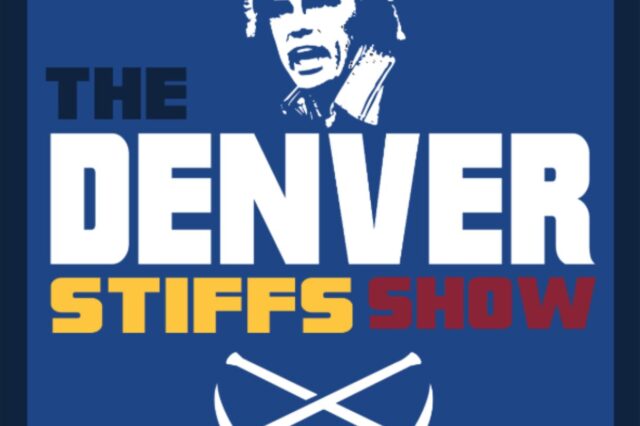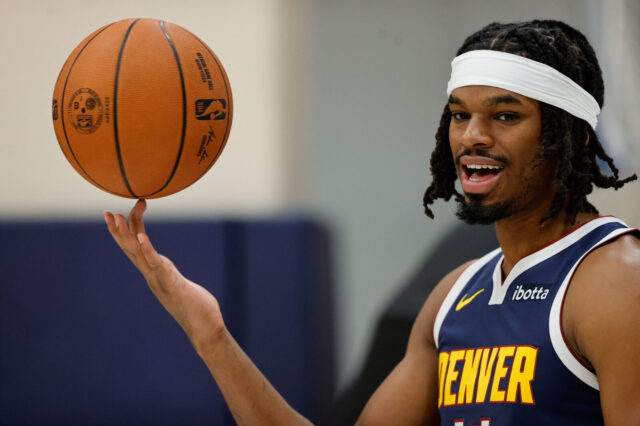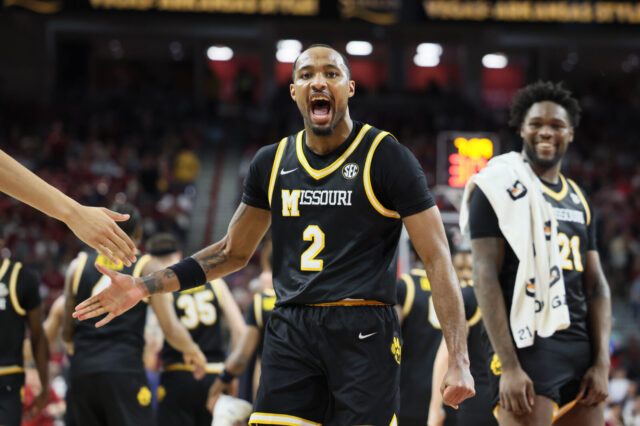The Denver Nuggets have a rather unique problem: in a sea full of options, what point guard is the right fit next to Nikola Jokic? The NBA is loaded with quality point guards. Some of them would have been playing shooting guard a decade ago but regardless, it is a position of strength for the league. There are score-first PGs and assist-prioritizing PGs and even a few defensive points. What set of skills does Denver need from a position that is normally a floor general and certainly the primary ball-handler but may not be either for them?
Any rebuilding team is looking for a couple of lynchpins to build around, and Denver found its first in Jokic. “Unicorn” is too banal a term for what Jokic does for the Denver offense, but his incredibly unique skillset creates problems for traditional point guards. Jokic often brings the ball up in transition now, or throws it ahead to a streaking wing. He operates the dribble-handoff out of the high post while the guards often function as cutters or misdirection rather than orchestrators.
That can be a huge adjustment for a veteran player who has dominated the ball since middle school. Jameer Nelson, for instance, was terrible next to Jokic all of last year and much of this one. He had a 42.4 TS% and scored 0.84 points-per-play last season when paired with Jokic, and had a 47.8 TS% and .091 PPP through January 15th this season. But over the last 8 weeks, Jameer has finally figured some things out. His TS% since 1/16 is 63.9% next to Jokic, and he’s scoring at a 1.23 points-per-play clip. Emmanuel Mudiay wasn’t benched because Nelson’s vet aura was so impressive – it’s Nelson’s play that’s been quite good for a couple of months.
But Nelson is not the point guard of the future. At some point Denver has to figure out what sort of player can thrive next to Jokic. The easy answer is “all of them” since everyone seems to out-perform their norms when the Serbian is on the floor, so the more crucial question to answer is, “what player-type will raise the production of the whole team?”
Denver has had atrocious wing and backcourt defense for much of this season, creating extra pressure on its offense to produce early and often.
The Nuggets can’t get enough stops to consistently chase down teams, and their bench is still showing hiccups. With Mason Plumlee brought in for the overt purpose of creating a second unit that functions much like the first unit, Denver is looking for point guards that can play well next to an assist-generating center for all 48 minutes to avoid some of those hiccups that come from running two different offenses with mismatched players.
Emmanuel Mudiay hasn’t done much with Jokic this year (51.8 TS%, .95 PPP) but neither has Jamal Murray (50. TS%, 1.02 PPP). Murray has been scoring well recently and in bunches, though, while Mudiay has been coaching from the sidelines and out of the rotation completely. If either of those guys is set up to be a point guard next to Jokic it would be Murray right now, because he has better offensive potential and was prepped to play off-ball after his stint beside Tyler Ulis in college. Murray has scored in double-digits in 8 of his last 9 games, showing off his entire repertoire of long-range sniping, floaters and even dunks in his quest for more minutes with the starting unit.
Unfortunately neither is great at defense (despite Murray’s obvious effort on that side of the ball) and point guards still light up the Nuggets at every opportunity. Should Denver be looking for a defensive point guard instead? PG is generally regarded as the least important position to get defense from. That thought is changing in some circles but regardless, a PG can be merely average on defense and still be considered a vital cog in the machine.
That should allow Denver to add a defense-first point guard because fewer teams are looking for one with that primary skillset. But around Jokic, spacing is crucial – can Denver really play with a point guard that can't actually shoot?
Ricky Rubio has shown himself to be a good defender, and a very willing passer. He hasn’t shown himself to have the offense he was expected to grow into, though, and playing him on the perimeter would allow teams to sag into the paint more and cut off some lanes that Jokic uses to work his magic. Rubio and Plumlee together could also be a spacing disaster, with both men lacking the willingness and ability to hit long jumpers.
But Rubio’s deal is very reasonable. Any of the better free agent points will cost far more in both dollars and years. George Hill and Jeff Teague will likely get $20+ million a year for being second-tier PGs. How much should Denver pay a PG in a Point-Jokic offense, especially when that PG may take a year or two to get used to playing with a point-center? Nelson bided his time as Jokic came to the forefront, but guys with hundred-million-dollar contracts don’t tend to bide very well.
It’s possible Frank Ntilikina falls in the draft and Denver can get him. Frank is an extremely long, defensive-minded point guard who can still pass and score at a high level. He’s a teenager, though, and does Denver really want to try to groom yet another teen with big minutes and responsibility when they are trying to take the next step in the playoffs?
There are also international options. Serbian legend Milos Teodosic might be ready to head to the NBA, but whether he would he cede some control to his junior countryman is a complete unknown. How he would adjust to the NBA is also up in the air.
Are the Nuggets better off just going with someone like Jamal Murray, who will be able to fill it up while giving enough energy on defense to be that average defender for his position? What is Denver looking for in the perfected version of their Jokic-centered offense?
The perfect option isn’t there right now. But what Jokic complicates by his own uniqueness he also simplifies by providing more options. Everyone plays better on offense with Jokic. Defensively-oriented players would get the ball in better situations for them to succeed. Gunners suddenly get open looks instead of taking tough fadeaways. Denver might be better off simply adding another defensive backcourt player and switching through 3 or 4 guards as the situation dictates. That messes with a team’s rhythm, though, and as various complaints from Wilson Chandler and Jusuf Nurkic have shown this year, rhythm and expectations matter.
For me, the perfect point guard would look a lot like Frank Ntilikina – if Frank was 25 and a borderline All-Star. Since that’s not available, I expect Jamal Murray to take over some of the starting responsibilities at the point. Mudiay next to Mason Plumlee creates some of the same problems that Rubio would, which may make Emmanuel the odd man out even though he was playing better next to Jokic after the lineup change.
But Murray at point guard should create more minutes for Malik Beasley (assuming he is still on the team after the summer). Malik is an explosive athete and potential knock-down shooter who can’t find reps in this crowded backcourt but outclasses the D-League on his trips down there to stay stretched out. The Nuggets don’t know what they have with him yet, but his offensive chops could help plug some of those bench leaks. Murray and Harris as the starters and Jameer/Beasley with the reserves should create the spacing and aggression to help Denver master this particularly fascinating brand of motion offense. Adding another defender when Jameer departs after next year would further balance the backcourt structure.
In the end, Denver is relying on its offense to be the engine of their success. Sometimes the choice isn’t that hard. Find the offense you need to outrun most of the league and then get enough stops to win. It worked for Doug Moe’s Nuggets, and it’s working for the Houston Rockets now.
We’ll see you at point guard next year, Mr. Murray.


